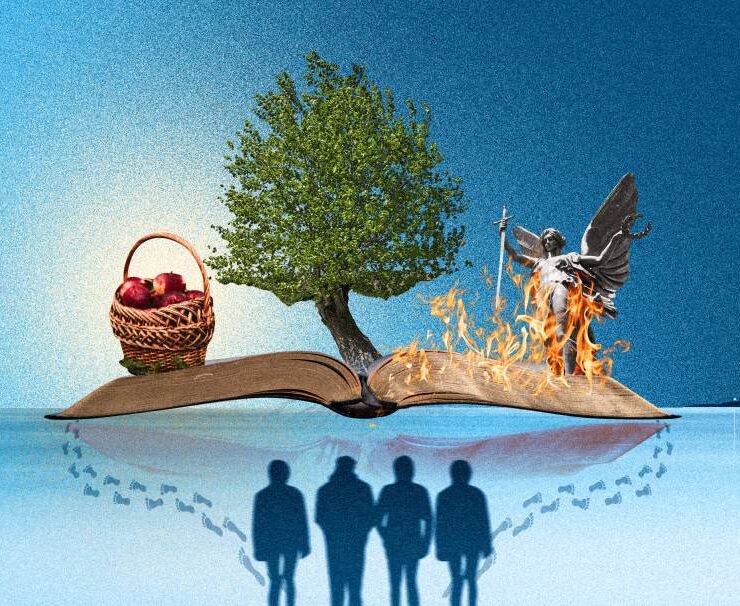The glory of God is man fully alive

May 18, 2025 – Fifth Sunday of Easter
Readings: Acts 14:21-27; Psalm 145, R. I will praise your name for ever, my king and my God.; Revelation 21:1-5a; Gospel – John 13:31-33a, 34-35
These days we reread the Final Discourse in the Gospel of John. We read this during Lent as we approached Holy Week.
Here, though, we reflect on it from the perspective of Jesus leaving in his Ascension and not from the perspective of dying on the Cross. This is our first point for our reflection.
The second point is looking at the characteristics of Jesus’ love, and finally, the third point is the love that characterizes the Christian community.
When Jesus talked about his glorification and God glorified in him, it was in reference to the glory of his Cross and Resurrection.
Jesus’ glorification was his perfect sacrifice on the Cross, perfected by loving obedience. The physical suffering inflicted by the cruelty and violence of men was transformed by his loving obedience.
He was glorified by his being raised on the Cross and in the Resurrection. His humanity is perfected by his perfect love for the Father and for us through loving obedience. He “reclaims” his divinity.
This is our hope and inspiration, because of Jesus’ perfect sacrifice and perfect love we have the path and grace toward eternal life by how we pattern our life after his perfect love.
As St. Irenaeus rightly put it, “The glory of God is man fully alive.” We saw Jesus glorified in the Paschal Mystery and God glorified in him.
This grace is available to us as we live out the pattern of the Cross and Resurrection in our day-to-day life.
Three qualities of love
The key is in our second point for reflection: “I give you a new commandment: love one another. As I have loved you, so you also should love one another.” (cf. John 13:31-33a, 34-35)
Loving one another the way Jesus loved us. We highlight three qualities of this love. It is a selfless love, a forgiving love, and a love expressed in and through loving obedience.
The selfless love began in his incarnation when he “emptied himself of his divinity and took on the form of a servant.” (cf. Philippians 2: 7-11) Then time and again he poured out himself in compassion and mercy, responding to the needs of many.
This selfless love was a total giving of self with great generosity, a greatness of soul in giving.
This selfless love is perfected in forgiveness, most especially his forgiveness on the Cross: “Father, forgive them for they know not what they are doing.” (Luke 23:34)
Mercy and forgiveness, the second characteristic of God’s love that comes to us in and through Jesus.
This was one of Pope Francis’ central messages, the mercy of God is at the heart of the Christian proclamation.
His first book published when he was Pope–which made it to the New York Times’ bestseller list–was “The Name of God is Mercy.”
Mercy, obedience
This was published as part of the Extraordinary Jubilee of Mercy in 2016. In the book, Pope Francis invited us “to an intimate and personal dialogue on the subject closest to his heart—mercy—which [was] the cornerstone of his faith and [was] the central teaching of his papacy.”
The final characteristic of Jesus’ love is his loving obedience to his Father’s will and mission for him.
This is the summary characteristic that integrates all characteristics of his love—a generous selfless love expressed most concretely and powerfully in the forgiveness of the Cross, our redemption in, through and with Jesus’ Cross and Resurrection.
All this took place because of his loving obedience, “not my will, but your will be done.” (Luke 22: 42)
Finally, the invitation for us to be a community of disciples, of followers of Jesus, of friends in the Lord by our loving one another as Jesus loved and continues to love us.
This community we are invited to build in our families and homes. This is the society we are called to develop. This is the world that we pray for, “Thy Kingdom come, Thy will be done on earth as it is in heaven.”
This is the “new heaven and a new earth. The former heaven and the former earth had passed away…” (cf. Revelation 21:1-5a) In this and in Jesus alone is our hope.





















